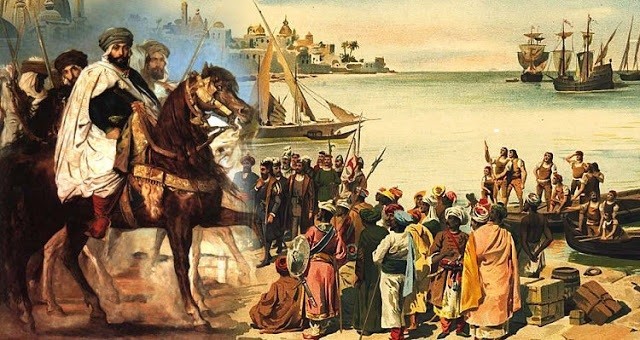History Islamic traditions in the archipelago of Indonesia dates back to the 13th century, when Arab and Indian traders introduced Islam to the region. Over time, Islam became deeply ingrained in Indonesian culture, shaping the country’s customs, values, and beliefs.
1. The Arrival of Islam in Indonesia
The arrival of Islam in Indonesia was a gradual process that began in the 13th century. Arab and Indian traders brought Islam to the region, and over time, it spread throughout the archipelago. At first, Islam was adopted by small communities of traders and scholars, but it eventually gained wider acceptance.
2. The Rise of Islamic States in Indonesia
As Islam gained popularity in Indonesia, Islamic states began to emerge throughout the archipelago. These states were often led by sultans who ruled over their own territories and were responsible for enforcing Islamic law. The most prominent of these states was the Sultanate of Demak, which was established in the 15th century.
3. The Influence of Islamic Teachings on Indonesian Culture
Islamic teachings had a profound impact on Indonesian culture, influencing everything from art and music to politics and governance. Islamic art, for example, became an important part of Indonesian culture, with intricate geometric patterns and calligraphy adorning everything from pottery to textiles.
4. The Development of Islamic Schools and Institutions
As Islam became more deeply ingrained in Indonesian culture, a number of Islamic schools and institutions began to emerge. These schools were responsible for educating young Muslims in Islamic teachings and providing them with a strong foundation in Islamic faith and culture. Today, there are numerous Islamic schools and universities throughout Indonesia.
5. The Role of Islam in Indonesian Politics
Islam has played an important role in Indonesian politics since the country gained independence in 1945. A number of political parties have been founded on Islamic principles, and many politicians have used Islamic rhetoric to gain support. Islam has also been used as a means of resistance against government policies and as a way to assert ethnic and regional identities.
6. The Diversity of Islamic Traditions in Indonesia
Despite its deep roots in Indonesian culture, Islam in Indonesia is not monolithic. There are a wide variety of Islamic traditions and practices in Indonesia, reflecting the diversity of the archipelago’s population. Some communities practice a more conservative form of Islam, while others have incorporated elements of local traditions and customs into their Islamic practices.
7. The Future of Islam in Indonesia
The future of Islam in Indonesia is uncertain. While the religion remains an important part of Indonesian culture, there are concerns that the rise of more conservative forms of Islam could lead to the marginalization of minority groups and the erosion of Indonesia’s democratic values. Nevertheless, many Indonesians remain committed to the principles of tolerance and diversity that have long characterized their country’s Islamic traditions.
Conclusion:
In conclusion, the history of Islamic traditions in the archipelago of Indonesia is a rich and complex story that spans centuries. From the arrival of Islam in the 13th century to the emergence of Islamic states and institutions, Islamic teachings have had a profound impact on Indonesian culture, shaping the country’s customs, values, and beliefs.
As Indonesia looks to the future, the role of Islam in Indonesian society will continue to be a topic of debate and discussion. However, it is clear that Islamic traditions will remain an important part of Indonesian culture for generations to come.

